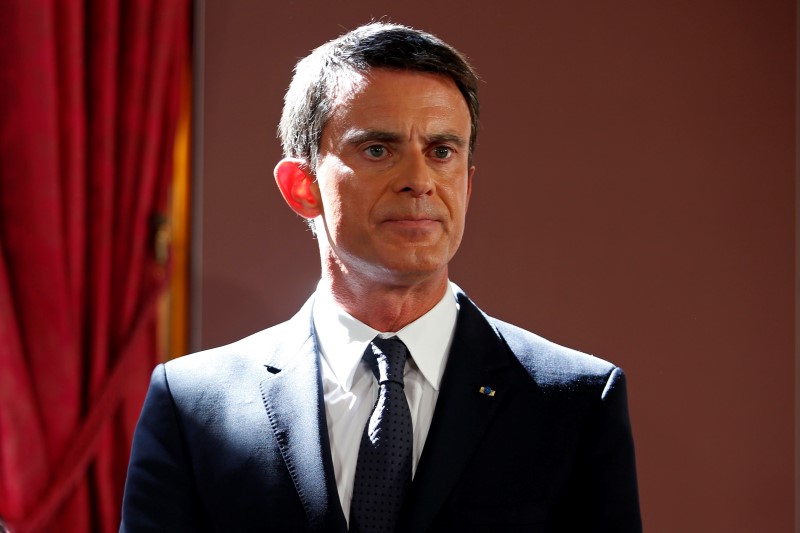By Michel Rose
PARIS (Reuters) - The French government will propose legislation to simplify over-complex labour laws and promote more collective bargaining accords at a sectoral level, French Prime Minister Manuel Valls said on Wednesday.
France, where unemployment remains stubbornly high at a near record 10 percent, has promised to speed up structural reforms demanded by its European Union partners in exchange for more leeway on deficit reduction.
The European Commission, International Monetary Fund and Organisation for Economic Cooperation and Development have all said that a reform of the labour sector should be the top priority for the euro zone's second-largest economy.
The prime minister, speaking after he took delivery of government-commissioned recommendations on the revamp, said draft legislation will be proposed by year-end after talks between labour unions and employers. Final adoption by parliament is expected by the summer of 2016.
"This report is a major milestone of this mandate," Valls said. "It's a fact, our labour code has become too complex, sometimes even unreadable."
Valls said the reform would not unstitch statutes stating that the legal work week is 35 hours in France.
But there were plenty of areas in which unwieldy labour laws could be slimmed down and more room allowed for collective bargaining, among other things by greatly reducing the number of sectors where negotiations apply from 750 now to 100 eventually.
In neighbouring Germany, where collective bargaining has long been a bedrock of society, the number of sectors is only 50, according to the report's author.
"France is culturally one of the most centralised countries," said Jean-Denis Combrexelle, the top civil servant who drafted the document. "Here, a good rule must come from the state. We have to abandon that mindset."
Employers' organisation Medef hailed Combrexelle's work as "bold" and urged the government to quickly translate it into law. Reformist union CFDT also welcomed the recommendations.
But further labour reforms could face resistance from increasingly vocal rebel Socialist lawmakers and prompt street protests.

Valls recently had to force through parliament a package of free-market measures known as the "Macron Law" by invoking a little-used legal device, article 49.3 of the constitution.
(Reporting Michel Rose; Writing by Brian Love; Editing by James Regan and Catherine Evans)